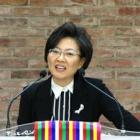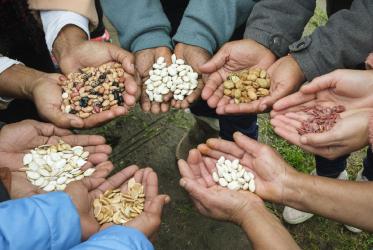The summer in Korea is a lush and attractive season for vacationers. Yet it is far more than that. It is a period haunted by heavy historical memories. June 25 marks the day of the outbreak of the Korean War in 1950; July 27, the day of the conclusion of armistice in 1953; and August 15, the day of liberation from Japanese occupation in 1945, which immediately led to the division between North and South by the Soviet Union and the United States.
Korea has entered into the 21th century without having overcome the wound from the past. Despite its remarkable economic and social growth during the post-war period, scars from the previous era still bleed wide open.
The Japanese government has not yet offered an official apology to the so-called 'comfort women,' that is, the military sexual slaves, whom they exploited and dehumanized during the Second World War. The fratricidal Korean War caused four million casualties, most being Korean civilians, and it ended with a temporary cease-fire agreement, not with a peace treaty.
Most of global citizens believe that the 'Cold War' was finished with the dramatic change that took place in Germany and the Soviet Union. Yet 10 million Korean families, who still remain separated by the Military Demarcation Line for 70 years, bear the brunt of the 'Unfinished War.'
To make it worse, the contemporary face of the Korean Peninsula is darkened by nuclear weapons in the North and nuclear power plants in the South. Northeast Asia has become the region representing the world's most dangerous nuclear minefield, surrounded by nuclear weapons and nuclear power plants.
The unresolved conflicts continue to increase military expenditure in the major stakeholder countries in the present times when economic resources ought to be channeled towards sustainable development and equitable distribution, particularly for the benefit of children, youth, and marginalized people.
This historical and geopolitical situation is the context of our pilgrimage of justice and peace. Two statements by the World Council of Churches, the "Statement on Peace and Reunification of the Korean Peninsula," and the "Statement towards a Nuclear-free World," adopted respectively by the Busan Assembly in 2013 and by the Central Committee in 2014, give a shape to the Korean pilgrimage in light of the exodus from division and nuclear threats.
The exodus-pilgrimage in Korea visits many stations in 2015, commemorating the 70th year of the liberation from Japanese colonialism and the beginning of division. For instance, the Presbyterian Church of Korea, initiated a 70-days special prayer movement for the healing, reconciliation, and peaceful reunification of Korea.
A number of pilgrimages were and will be walked in and around the Demilitarized Zone (DMZ) separating North and South Korea, especially by young people. On May 24, International Women's Day for Peace and Disarmament, a group of international women peace activists, revived an Asian women's peace initiative that the women of North and South Korea, together with Japanese women, took in the 1990s by crossing the DMZ.
On June 12, the government decided to close down the most outdated nuclear power plant, near to Busan. This outcome is a hard-won fruit of the long-term commitment of civil society and ecumenical groups, including the YWCA of Korea, especially of Busan.
Korean Christian women have been playing an important role in the struggles against Japanese colonialism, military dictatorship, economic injustice, human rights violation, eco-injustice, patriarchy and other oppressive powers. This legacy will hopefully continue to mold Korean women's pilgrimage of justice and peace in the 21st century.
The exodus-pilgrimage in Korea requires our spiritual and political will to imagine and work for a better world where our next generations could live in a way promoting human security and eco-justice, flourish in an economy of life for all, and contribute to the peace of Northeast Asia and the world.
In a divided country, a pilgrim is a bridge-builder, just as Jesus Christ, our peace, is the bridge-builder between the heaven and the earth, and among many dividing walls of hostility in humanity.
In a society full of energy greed, a pilgrim is one who laments human foolishness and selfishness, repents an idolatry of unlimited economic growth and the sin of avarice and insatiability, and paves a way for the use of renewable energy sources.
Most significantly, a pilgrim is a seeker of God, and justice and peace is a face of God in our broken world. Together with the fellow pilgrims in search of God, we need to be nourished in our struggle for justice and peace by incessant praying in the power of the Holy Spirit.
"God of life,
you call us to a pilgrimage of justice and peace,
to ventures of which we cannot see the ending,
by paths untrodden,
through perils unknown.
Give us faith to go out with courage,
not knowing where we go,
but only that your hand is leading us,
and your love supporting us."
(Modified version of a traditional prayer)
Disclaimer
The impressions expressed in the blog posts are the contributions of the authors and do not necessarily reflect the opinion or policies of the World Council of Churches.
Subscribe to the WCC news!
Please fill in this form if you would like to receive news and updates from the WCC by email.
Related content
-
-
-
-
World Council of Churches hosts "Guardians of seeds" exhibition
18 October 2023 -
-
"A world free from nuclear weapons is possible"
11 September 2023





